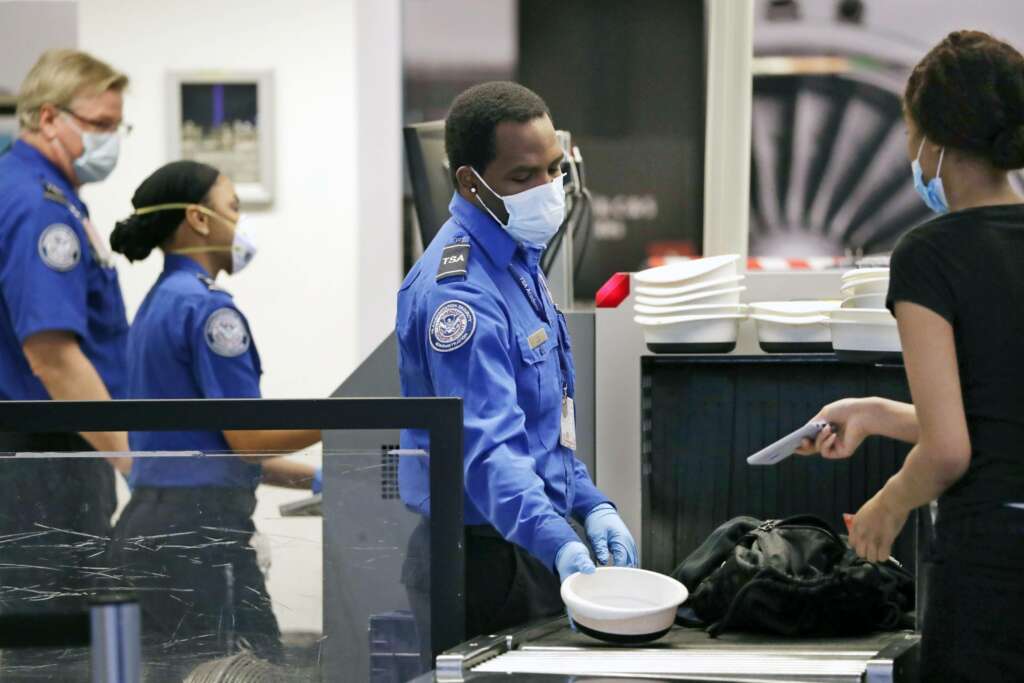
A perennial effort to increase pay and benefits for Transportation Security Administration employees took a major step forward this week after the House passed the Rights for the TSA Workforce Act of 2022 on Thursday.
The bill would bring 60,000 TSA employees, including transportation security officers, under the same personnel system as other federal employees under Title 5 of U.S. Code. That includes full collective bargaining rights, access to an independent third party for dispute resolutions and the General Schedule pay system.
Homeland Security Committee Chairman Bennie Thompson (D-Miss.), one of the leading sponsors of the bill, called it “the right thing to do” in a statement released after the bill passed the House. The bill would eliminate the special personnel authorities that have governed workplace conditions for TSA employees since the agency’s inception two decades ago.
“It’s long past time that we place this critical workforce under Title 5 to provide better pay and full collective bargaining rights,” Thompson said. “Doing so will reduce attrition, boost morale and improve and professionalize the TSA workforce.”
The House passed the bill 220-201, almost entirely along party lines, with four Republicans joining Democrats in voting for the measure.
Homeland Security Committee Ranking Member John Katko (R-N.Y.) declined to support the bill. He said he supports increasing pay and benefits for frontline TSO’s, but not for the rest of the TSA workforce.
“If the bill was limited to just them, I would support it,” Katko said on the House floor. “Why do we have to make it for everyone else?”
Katko said he thinks the bill will be “dead on arrival” in the Senate. Republicans also objected to giving TSA employees full collective bargaining.
But Katko said he will support increased appropriations for TSA to raise the salaries of the frontline screening workforce. The Biden administration has proposed a fiscal year 2023 budget for TSA that would finance the agency’s pay equity plan, including a 30% average increase in base pay for TSO’s.
Meanwhile, the American Federation of Government Employees applauded the House passing the bill, and called on the Senate to quickly pick up the legislation.
“TSA officers have been treated as second-class citizens for far too long,” AFGE President Everett Kelley said in a statement. “Despite the unfair pay and treatment, they continue show up for their country each and every day. They have worked for no pay during government shutdowns and put their health at risk throughout the pandemic to ensure the traveling public is safe.”
In the Senate, similar legislation was introduced last year by Sen. Brian Schatz (D-Hawaii) and Sen. Edward Markey (D-Mass.). It was referred to the Committee on Commerce, Science and Transportation, which has yet to take further action on the bill.
TSA Administrator David Pekoske says increasing pay for its frontline workers is the agency’s biggest challenge.
Last June, Homeland Security Secretary Alejandro Mayorkas directed TSA to expand collective bargaining rights for TSO’s, negotiate an agreement to bring appeals before the Merits Systems Protection Board, and develop a plan to pay screeners in line with the General Schedule.
In September, TSA and the MSPB reached an agreement that allows TSOs to appeal some firings, demotions and long-term suspensions before the board.
Meanwhile, AFGE has called on TSA to expand collective bargaining for TSOs immediately. But TSA told the union it needs additional funding to hire staff that can support an expanded labor framework.
